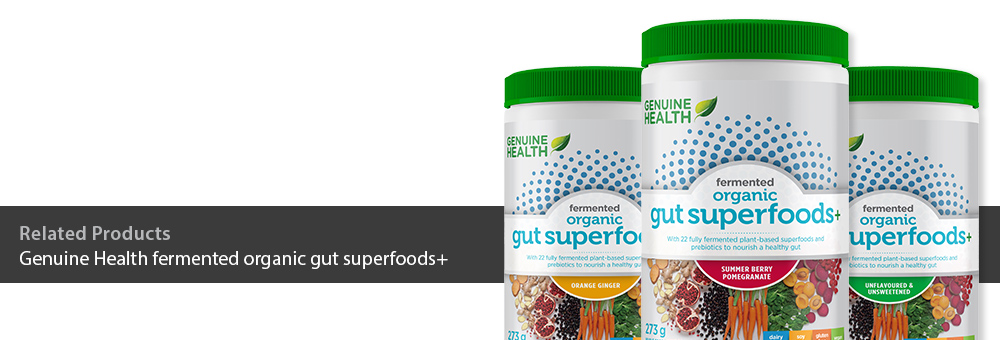

What’s standing between you and perfect health?
What kind of life do you want to live? And how do you want to feel?
I see patients all the time who tell me that they want more energy, a happier mood, no pain, great sleep, and fewer cravings – maybe you’re the same.
But you may be surprised to learn that inflammation could be stopping you from feeling this way. In fact, inflammation is at the root of most chronic medical conditions.
Before we can get there, let’s have a refresher on the two main types of inflammation:
- Healthy (acute) inflammation: This type of inflammation is your body’s way of healing an injury. Injury stimulates the immune system to send white blood cells and blood to the area. In the short term (in hours to days), this is perfectly healthy. When you stub your toe or twist your ankle, your body must create inflammation for the damage to heal.
- Unhealthy (chronic) inflammation: Researchers are still struggling with what causes this type of inflammation, but, for the most part can agree that stress, poor diet, physical inactivity and obesity, smoking, altered gut permeability, allergies and poor sleep are to blame. This type of inflammation does not easily go away, and sets the stage for many health conditions and chronic diseases like asthma, allergies, autoimmune disease, depression cardiovascular disease, Alzheimer’s disease, cancer, digestive conditions like celiac disease and inflammatory bowel disease, and even persistent low-grade pain and trouble losing weight.
Chronic inflammation can cause us to age faster, and generally increases as we age, leading to what some researchers are calling “inflammaging.”
So how can we stop this process? Here are some ways that we can bring the body back into balance and cool down chronic inflammation.
Phytonutrients
Phytonutrients from brightly coloured vegetables and fruits have an antioxidant effect, protecting our cells and preventing against free radical damage that can lead to inflammation. You’re probably thinking, “Tell me something I don’t know, Dr. Kat.”
But what if I told you that phytonutrients can also help strengthen our gut health and prevent against one of the causes of inflammation – intestinal permeability, also known as “leaky gut”?
Unfortunately, our Westernized diets have lower intake of phytonutrients. Even when we’re meeting the recommended daily intake of vegetables and fruits, we’re probably not getting all of the phytonutrients that our body needs to function. That’s because variety is missing – just four foods make up the bulk of the phytonutrients that we eat: tomatoes, oranges, carrots and strawberries.
It’s also harder to get the nutrients we need from our food because changes to agriculture have made our food less nutritious. That’s why it’s so important to supplement with a superfood. But not any superfood will do – look for one that is full of a spectrum of colourful plant ingredients, and is created to improve gut health like fermented organic gut superfoods+, or is proven to become active in the blood like greens+.
Probiotics and inflammation
I’m sure that you’re familiar with probiotics – most people use them to improve their digestion, but probiotics can provide so many other benefits to the body, including inflammatory support. Studies have shown that probiotics can have anti-inflammatory properties – not just in the gut, but throughout the body. One study showed that an L. plantarum strain of probiotics could reduce the body-wide inflammatory cytokine IL-6 by 40%.
Look for a probiotic that’s designed to populate the gut with more viable bacteria.
advanced gut health probiotics by Genuine Health are made with 15 strains of super potent bacteria (including L. plantarum), and are encapsulated in a way to deliver more of them to your gut.
Omegas and inflammation
Probiotics can lower inflammation alone, but some research in humans shows an even more effective response when probiotics are combined with one of the most well-known inflammation-fighting supplements that help to bring our fatty acids back into balance: omega-3s.
One study found that supplementing with a probiotic plus an omega-3 improved insulin sensitivity, lipid profile and other markers of cardiovascular disease better than a probiotic alone!
Another study found that EPA (the fatty acid found in fish oil that is more strongly associated with fighting inflammation) can help probiotics “stick” to intestinal cells and boost bifido bacteria levels. Another study found that probiotic bacteria helped to increase DHA and EPA levels in the brain.
Simply put, taking an omega-3 fish oil can make your probiotics work better, and your omega-3 fish oil work better, too. This can impact the entire body, as a healthy gut has been linked to lower inflammation.
Look for purely-sourced omega supplements with high EPA and DHA, in formulas to support your overall health goals. Can a fish oil help improve mood?
When we get rid of inflammation, we can move on with our life – with more energy, vigour, fewer cravings, less pain, and a better mood overall. Isn’t that the way we all want to feel?
By Dr. Katherine Kremblewski
References:
Barret E et al. Bifidobacterium breve with α-linolenic acid and linoleic acid alters fatty acid metabolism in the maternal separation model of irritable bowel syndrome. PLoS One. 2012;7(11):e48159. doi: 10.1371/journal.pone.0048159. Epub 2012 Nov 20.
Claesson, M. J. et al. Gut microbiota composition correlates with diet and health in the elderly. Nature 488, 178–184, doi: 10.1038/nature11319 (2012).
Kaliannan K et al. A host-microbiome interaction mediates the opposing effects of omega-6 and omega-3 fatty acids on metabolic endotoxemia. Sci Rep. 2015 Jun 11;5:11276. doi: 10.1038/srep11276.
Naruszewicz M, et al. Effect of Lactobacillus plantarum 299v on cardiovascular disease risk factors in smokers. Am J Clin Nutr. 2002 Dec;76(6):1249-55.
Park C, et al. Probiotics for the Treatment of Depressive Symptoms: An Anti-Inflammatory Mechanism?Brain Behav Immun. 2018 Jul 13. pii: S0889-1591(18)30304-0
Rajkumar H, et al. Effect of probiotic (VSL#3) and omega-3 on lipid profile, insulin sensitivity,inflammatory markers, and gut colonization in overweight adults: a randomized, controlled trial. Mediators Inflamm. 2014;2014:348959
Rajkumar, H. et al. Effect of probiotic (VSL#3) and omega-3 on lipid profile, insulin sensitivity, inflammatory markers, and gut colonization in overweight adults: a randomized, controlled trial. Mediators of inflammation 2014, 348959, doi: 10.1155/2014/348959 (2014).

